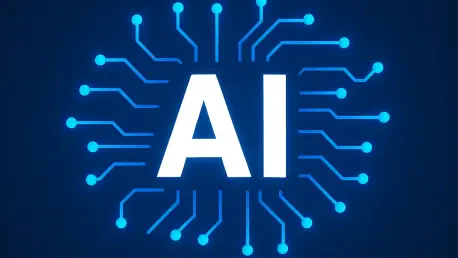The technology sector confronts a challenging paradox where artificial intelligence (AI) redefines job roles against a backdrop of rising layoffs. With tech giants like Google and Meta adjusting their workforce, AI transforms employment dynamics, showing both opportunities and the strain of economic pressures. This analysis navigates through the complex scenario, discussing the significance and implications of these changes on the tech employment landscape.
Examining Tech Employment Topography
In the early 2020s, the technology sector experienced a hiring boom triggered by a rapid shift toward remote work due to the COVID-19 pandemic. This surge in hiring laid the foundation for AI integration, profoundly influencing business practices. However, as businesses pivoted to evaluate economic realities, prominent tech companies initiated significant layoffs, illustrating a strategic realignment to adjust to changing market conditions.
AI’s Dual Role in Employment Transformation
AI’s Impact on Job Structure: A Double-Edged Sword
Artificial intelligence exerts a complex influence on tech employment, simultaneously eliminating some roles while creating others. Despite concerns of automation-led job losses, the demand for AI-centric job roles has soared by a staggering 117% over the past year. This increase underscores the need for adaptive skills in the workforce, as firms reorganize amid economic pressures, straddling necessity and opportunity in workforce restructuring.
New Opportunities and Evolving Industry Requirements
AI catalyzes demand for new job roles, such as data scientists and database architects, reflecting the technological reinvention of business operations. Firms are transcending exploratory phases to the operational execution of AI, with job listings for these roles showing monumental increases. This sectoral shift necessitates a recalibration of workforce skills while presenting new opportunities for skilled professionals.
Dissecting Misconceptions and Complex Realities
Within this intricate landscape are misconceptions around AI’s effect on employment. While regional imbalances persist, certain areas benefit from AI-fueled job creation. Experts advocate for skill-oriented hiring as an effective bridge over credentials, challenging the notion that AI will indiscriminately eliminate jobs. AI elevates productivity and skill development, leading to enriched workforce capabilities rather than mere job displacement.
Future Tech Employment Patterns
As AI continues to advance, both its transformative potential and economic demand will influence the future of tech jobs. The projected growth of AI tools will pressure companies to adopt more agile and data-driven approaches. Companies aiming to lead in AI adaptation require a workforce capable of utilizing these innovations effectively, prompting further shifts in employment landscapes and a focus on upskilling initiatives.
Strategic Navigational Approaches
Both businesses and tech professionals can strategically navigate this transformed employment landscape by prioritizing continuous skill development and embracing lifelong learning. Industry-recognized certifications and practical training provide competitive advantages over traditional academic pathways. Cultivating an innovative corporate culture equips companies to adapt and thrive amidst uncertainties, while individuals who stay informed and receptive to reskilling opportunities can capitalize on evolving employment trends.
Conclusive Insights: Securing a Future in Tech
The examination of AI’s profound influence on tech employment amidst growing layoffs reveals a nuanced narrative. Although challenges emerged, AI’s potential to shape the future job market demanded strategic foresight and adaptability. By recognizing broader trends and implications, stakeholders became better equipped for upcoming changes, ensuring their place in a transforming technology landscape. As innovations evolved employment potentials, this understanding prompted proactive adaptation and progress.









